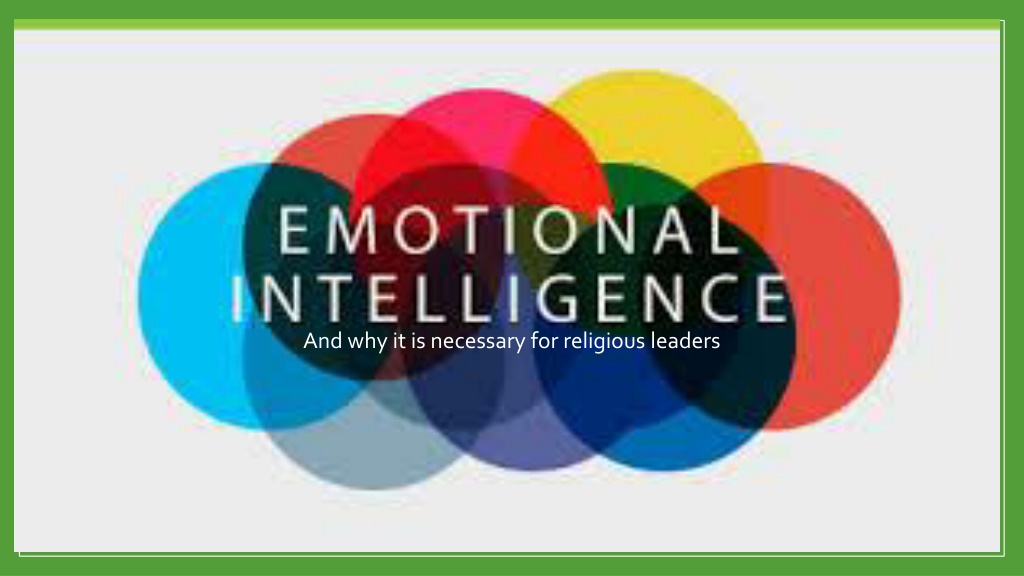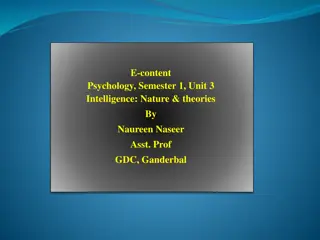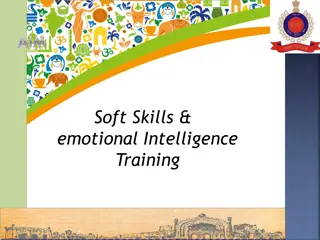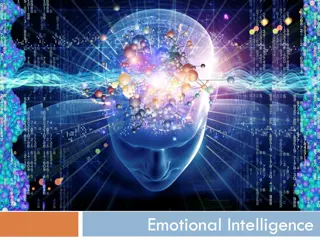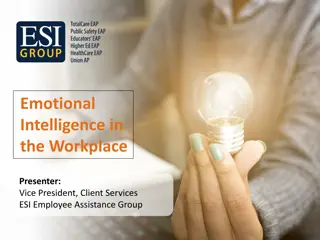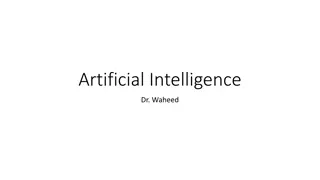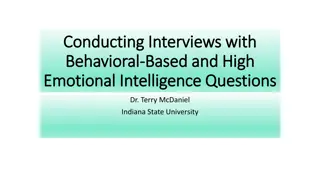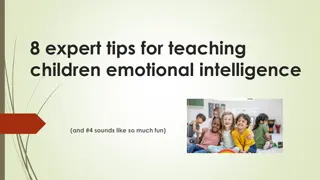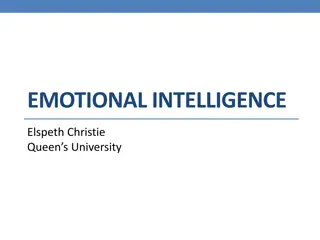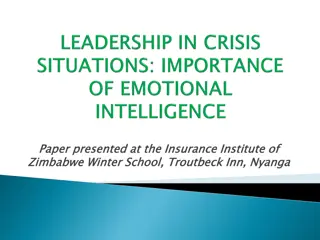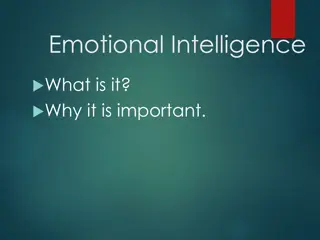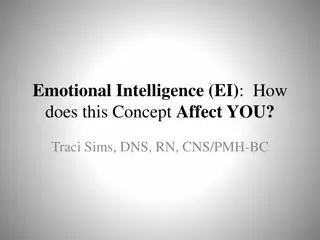Importance of Emotional Intelligence in Religious Leadership
Religious leaders benefit greatly from high emotional intelligence, leading to better performance, increased staff retention, and a more positive work environment. Emotional intelligence plays a vital role in pastoral ministry, enhancing emotional care for congregants. Educational programs focusing on social and emotional learning are increasingly prevalent in schools, emphasizing the development of emotional intelligence skills from early childhood through high school.
- Emotional Intelligence
- Religious Leadership
- Social Emotional Learning
- Pastoral Ministry
- Educational Programs
Download Presentation

Please find below an Image/Link to download the presentation.
The content on the website is provided AS IS for your information and personal use only. It may not be sold, licensed, or shared on other websites without obtaining consent from the author. Download presentation by click this link. If you encounter any issues during the download, it is possible that the publisher has removed the file from their server.
E N D
Presentation Transcript
On your KWL Chart 1. Think of an experience when you felt you handled a situation or reacted to a person with emotional intelligence Briefly write that experience down and what you think characterized it as an emotionally intelligent response 2. Now, think of an experience when you allowed yourself to be emotionally hijacked and afterwards was sorry about how you handled the situation or reacted to a person. Briefly write that experience down and try to retrace what happened within you that made you react the way you did.
The term Emotional Intelligence first appeared in the 1960s (Michael Beldoch 1964, Mayer and Salovey; in 1995 Daniel Goleman, etc.) People are no longer being judged by thinking capability but: how we relate to other people; our personal qualities; how adaptable, flexible and persuasive we are, how well we work with other people.
Religious With Emotional Intelligence Majority of the competencies that are associated with high-performing people are associated with emotional intelligence. People who have high emotional intelligence are known to perform better than those with low- or average EI by 50%. People with very high emotional intelligence competencies are capable of working more efficiently and productively Assessments involving emotional intelligence increased retention of staff by nearly 70% Where there is emotional competence, there is a more positive workplace and less grievances.
Leadership is about how we relate to and motivate the people around us A pastor observed that It is vital to consider emotional intelligence, because pastoral ministry involves human dynamics. With our pastoral role as congregational religious leaders comes the whole emotional dynamic of spiritual and emotional care for others.
Educational Programs of social and emotional learning or SEL In 1995, only a handful of such programs teaching emotional intelligence skills to children. Now, a decade later, tens of thousands of schools worldwide offer children SEL. Specific have been established for every grade from kindergarten through the last yealearning standards in SEL abilities r of high school. In the early elementary years students should learn to recognize and accurately label their emotions and how they lead them to act. By the late elementary years lessons in empathy should make children able to identify the nonverbal clues to how someone else feels; In junior high they should be able to analyze what creates stress for them or what motivates their best performance. And in high school the SEL skills include listening and talking in ways that resolve conflicts instead of escalating them and negotiating for win-win solutions. In 2002 UNESCO began a worldwide initiative to promote SEL, sending a statement of ten basic principles for implementing SEL to the ministries of education in 140 countries.
SEL as the umbrella program for: programs in character education helping children improve their self-awareness and confidence manage their disturbing emotions and impulses increase their empathy violence prevention anti-bullying drug prevention Result: Enhanced school discipline, student behavior, the school climate and, ultimately, students academic performance.
UNESCO Social and Emotional Learning Competencies the ability to relate well to others to cooperate to manage and resolve conflict to act autonomously the ability to act within the larger context to form and conduct life plans and personal projects to defend and assert one s rights, interests, limits and needs to use language, symbols and texts the ability to use knowledge and information interactively and the ability to use technology interactively
What is Emotional Intelligence? [Emotional Intelligence is the ability to] perceive and express emotion, assimilate emotion in thought, understand and reason with emotion, and regulate emotion in the self and others. Salovey and Mayer (2000) [Emotional Intelligence is] the capacity for recognizing our own feelings and those of others, for motivating ourselves and for managing emotions effectively in others and in ourselves. Daniel Goleman (1996)
Therefore the key elements are: To be effective leaders we must develop our ability to understand ourselves and understand others and, as a consequence, develop the ability to motivate people in the right way to achieve our mutually desired goals. Self-awareness Self-regulation Self-motivation Empathy Social Skills
